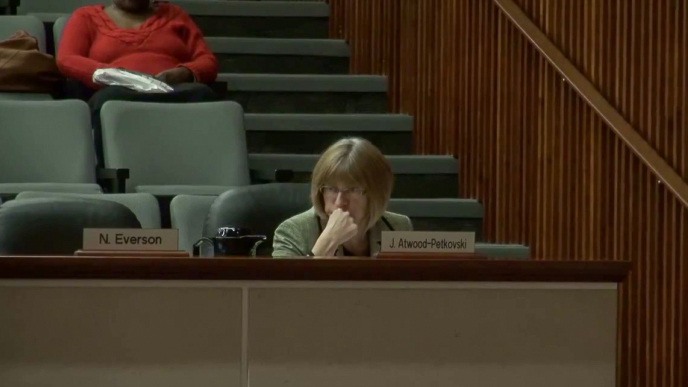This is Part I in a four-part series examining Hamilton City Council directing their appointed Integrity Commissioners to investigate the Chair of Hamilton’s LGBTQ Advisory Committee. For background and a timeline, visit the main page of the series here.
In an unsigned report, the Integrity Commissioners say LGBTQ Advisory Committee Chair Cameron Kroetsch should be removed from advisory committees and publicly reprimanded by Council for his statements on CHML criticizing City Council and the
City’s Senior Management Team for their roles in various City Hall cover-ups, for his criticism of backroom deals at City Hall, and for his public criticism of the Council appointee on the Hamilton Police Service Board.
Part I of a four-part analysis explains why this investigation is ultra vires, outside the bounds of law, and thus illegal.
Hamilton’s Integrity Commissioners are retired municipal senior managers Janice Atwood-Petkovski and Jeffrey Abrams. Atwood-Petkovski was Hamilton City Solicitor for four years, retiring in 2017.
The basis for the Integrity Commissioners’ investigation is a series of rule changes and resolutions passed by City Council in closed session earlier this year.
Part I: An Illegal Investigation
Integrity Commissioners derive their powers and authorities from Section 223.3 of the [Ontario] Municipal Act. The Act states ICs can investigate members of Council or Local Boards. They cannot investigate city staff, residents of the municipality, or groups which are not a Local Board.
The Municipal Act defines Local Board as “a municipal service board, transportation commission, public library board, board of health, police services board, planning board, or any other board, commission, committee, body or local authority established or exercising any power under any Act with respect to the affairs or purposes of one or more municipalities, excluding a school board and a conservation authority”.
It is not legal for Hamilton City Council to adopt a different definition of Local Board.
City Clerk Holland and City Solicitor Nicole Auty did not provide the analysis used to declare advisory committees to be Local Boards.
This interpretation is foundational the launching of the investigation regarding Kroetsch.
The Municipal Act definition has been clarified in numerous Ontario Court rulings, the foundational case for defining a Local Board is City of Hamilton and Hamilton Harbour Commissioners eta 1984 CanLII 2125 (ON SC).
The Ontario courts conduct a four part test to determine if a entity is a Local Board:
1. the entity must be carrying on the “affairs of the municipality” (as set out in the definition in section 1);
2. a direct link with the municipality must be found (either by way of legislation or authority from the municipality);
3. there must be a connection to or control by the municipality; and
4. there must be an element of autonomy.
The four part test presumes the entity “is established or exercising any power under any Act with respect to the affairs or purposes of one or more municipalities”.
To be a Local Board, all four conditions must be met. Atwood-Petkovski and Abrams are required to conduct this test and include it in their investigative report. They did not. In paragraph 3 of their report, they state “An advisory committee is a local board to which the code of conduct and oversight by the integrity commissioner apply”.
To be a Local Board “there must be an element of autonomy”. In paragraphs 20 and 21 of their report, Atwood-Petkovski and Abrams declare “advisory committees are not decision-making bodies” and “for advisory committee members, it is sometimes a surprising revelation that their personal advocacy for a public policy issue may in some respects be constrained by their appointment to a body which is bound to an advisory role only, given the primacy of Council”.
In doing so, Atwood-Petkovski and Abrams have found that the LGBTQ Advisory Committee is not a Local Board. They do not explain the contradiction between their statements. The earth cannot be both round and flat at the same time.
In paragraphs 42, 46, 52, 90, 91, 96, 97, and 98 of their report, Atwood-Petkovski and Abrams repeatedly state the LGBTQ Advisory Committee has neither autonomy, nor the ability to exercise any power with respect to the affairs of the municipality.
At no point in their report do Atwood-Petkovski and Abrams explain why they believe that, despite all their findings to the contrary, the Advisory Committee is a Local Board. Instead, throughout the report, they simply accept the claims of City Clerk Holland.
Section 223 of the Municipal Act requires Atwood-Petkovski and Abrams to independently assess and evaluate the claims put forth to them. There is nothing in their report to indicate they have done so.
Written coherent reasons are required of statutory decision makers. In 2018, in a judicial review of decisions made in part by Atwood-Petkovski as City Solicitor, writing for an unanimous three-judge Divisional Court panel Ontario Superior Court Justice Michael N. Varpio chastised the City for failing to properly consist the law and explain its legal reasoning when making statutory decisions. (CHP v. City of Hamilton, 2018 ONSC 3690)
It is for these reasons that Atwood-Petkovski and Abrams’ investigation is ultra vires – beyond the powers granted to them and City Council under the Municipal Act – and therefore illegal.
Production Details v. 1.0.0 First published: September 29, 2020 Last edited: September 30, 2020 Author: Joey Coleman Edit Record v. 1.0.0 original version v. 1.0.1 formatting and typographical updates

